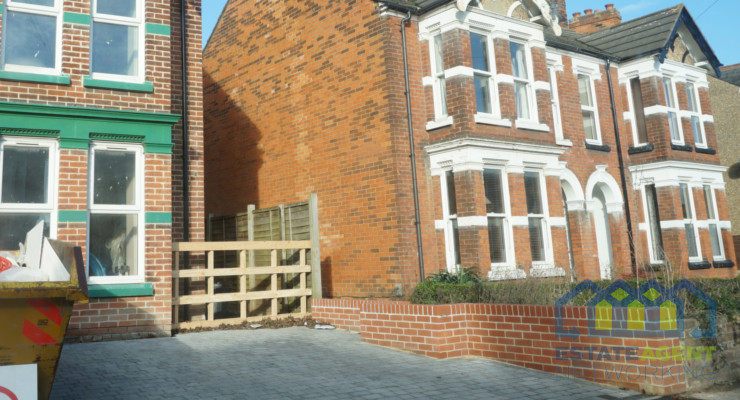Rightmove House Price Index – Subdued August as market looks for autumn pick-up
- Average new seller asking prices increase marginally by 0.4% (+£1,386) this month to £366,281, lower than is usual for this time of year:
- As expected, the annual price change drops further to -0.4%, the biggest drop since March 2019
- Subdued activity due to combination of interest rate rises and buyer and seller summer holiday distractions leads to price reductions creeping up to a level not seen since January 2011:
- 36.3% of properties currently for sale have had a price reduction, with an average reduction equating to £22,700 nationally (6.2%)
- The number of sales being agreed in August across all property types drops to 18% down versus August 2019
- The first-time buyer sector (two-bedrooms or fewer) is once again the best performing sector, with sales agreed down by 13% versus 2019
- Signs of activity starting to pick up, with back-to-school sellers helping the number of new properties coming to market to jump by 12% in the first week of September when compared with the average weekly number throughout August
- Small steps towards improved buyer affordability as mortgage rates continue to fall: the average five-year fixed mortgage is now at 5.67%, the seventh consecutive week of five-year fixed rates dropping, after peaking at 6.11% in July
In a month of subdued housing market activity, the average asking price of newly marketed properties increases a little to £366,281 (+0.4%). Prices have risen at this time of year in all but three of our September reports since we began reporting back in 2001, and it is smaller than the average of 0.6% recorded in the same period over the past ten years . While some sellers are clearly being too optimistic on their pricing, it does appear that others are listening to their agents’ advice to price correctly from the outset. As expected, the annual rate of change has continued its downwards trajectory, which means that prices are still on track to meet our prediction of a 2% fall over the year as a whole.
“It’s been a slower than usual August, so all eyes will be on market activity over the next few weeks, which will set the trend for the rest of the year. The combination of 14 consecutive Bank of England interest rate rises and many buyers and sellers still catching up on lost pandemic holidays has contributed to a bigger than expected summer lull, though we still anticipate an autumn bounce. Market conditions still vary considerably in different locations, and so a local estate agent will be best placed to advise sellers to give them the best chance of finding a buyer this autumn.” Tim Bannister Rightmove’s Director of Property Science
August was quieter than usual for new sellers, with the number of new properties coming up for sale being 6% lower than the ten-year average. Buyer enquiries remained stable, down just 1% on 2019, but the economic conditions, holiday distractions and reduction in fresh stock contributed to the number of sales agreed falling further, going from being 15% down on 2019 in July, to being 18% down in August. The first-time-buyer sector has consistently out-performed the larger home sectors since February, with this trend continuing in August. Sales agreed in this sector of two-bedrooms and fewer were down by 13% on August 2019, and encouragingly buyers enquiries in this sector were up by 1%.
Mortgage rates continuing their downward decline could help some first-time buyers, as although things are still tough for many, we’ve now seen seven consecutive weeks of falling mortgage rates. Average five-year fixed rates across all loan-to-value ratios are now 5.67%, down from 6.11% at their peak back in July. With house prices and mortgage rates falling, and average earnings increasing, we are continuing to take small steps towards improved buyer affordability.
Promisingly, many sellers reacted to the summer holiday hiatus by reducing the asking prices of their properties to help to attract a buyer. The five-year pre-pandemic average for the proportion of properties that have had at least one price reduction is 31.2%. That number has risen to 36.3%, which is the highest recorded since January 2011. Similarly, the average size of the price reduction was also the highest since January 2011 at 6.2%, versus the five-year pre-pandemic average of 5.5%. This level of reduction applied to the average asking price of £366,281 would be £22,709, suggesting that some sellers were too optimistic on their initial asking prices and have had to make some bigger than usual adjustments.
There is still not a glut of homes for sale, with the number of available properties down by 7% on 2019, but things are improving for buyers looking for more choice now that most holidays have ended and kids are back at school. The number of new properties coming to market was up by 12% in the first week of September when compared with the unusually low weekly average in August. Looking by sector, the first-time buyer sector saw new listings up by a smaller 7%, which may be helping to support prices in this sector where asking prices are still up on this time last year, albeit by a muted 0.3%. New listings in the second stepper sector are up by 11% on the same period, and the top of the ladder, although a smaller proportion of the overall market, has seen new listings up by 24%.
“As we enter a key selling season, more people who have been thinking about what they need from a home and where they want to be living next year and beyond are taking action and coming to market. This has helped to improve buyer choice, especially for those looking for larger homes, which also means that new sellers in the middle and upper sectors need to be extra careful not to set their price expectations too high. Plenty of sales are being agreed for properties that are priced at the right level, and those that are selling are still taking five days less than at this time in 2019. We’re also seeing the number of fall-throughs decline as market conditions and mortgage rates stabilise.” Tim Bannister Rightmove’s Director of Property Science
Agent’s View
“In almost twenty years of selling homes I feel that this summer and last summer have been the most subdued, perhaps due to the impact of not being able to travel in the summers of 2020 and 2021, but obviously with the current economic backdrop also. Encouragingly, since the start of September we’ve seen an upturn in enquiries as more home-owners have been motivated to step out into the market place, which should help translate into sales over the coming weeks and months.”
Andy McHugo, Director at McHugo Homes in Birmingham








